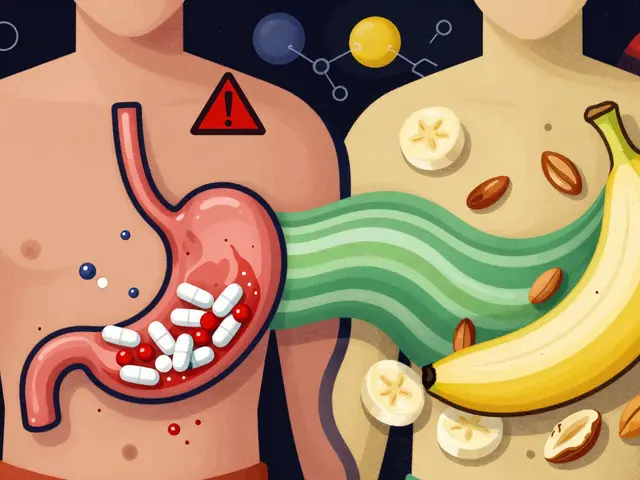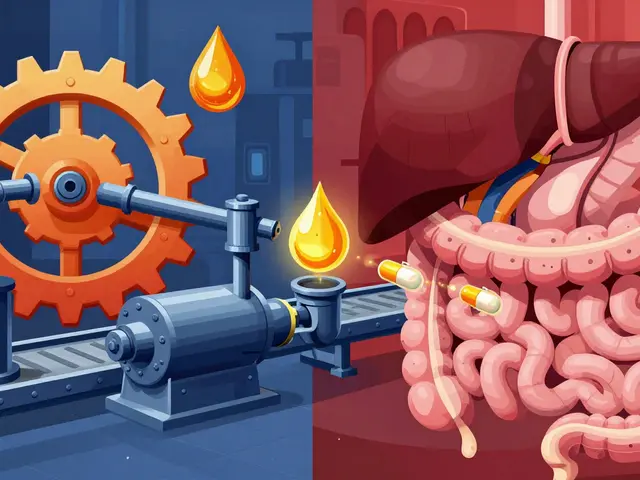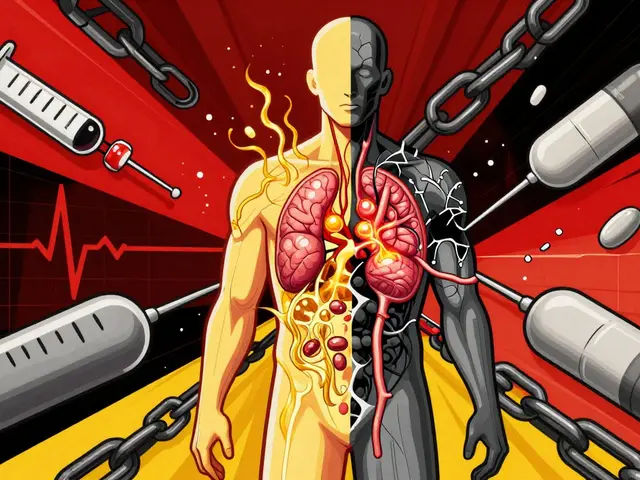Muscle Aches: Fast Relief and Practical Tips
Muscle aches are annoying and slow you down. Sometimes they come from a hard workout, other times from a cold, medication, or sleeping wrong. You don’t always need a doctor—simple steps at home usually help. Here’s clear, practical advice you can use now.
Quick fixes you can try today
Start with RICE: rest the area, ice for 10–15 minutes if it's swollen or painful, compress if needed, and elevate if possible. Use heat after 48 hours to relax tight muscles—think a warm shower or heating pad for 15–20 minutes. Over-the-counter pain relievers like ibuprofen or acetaminophen work for most people; follow the label and your doctor’s guidance.
Gentle movement beats total immobility. Light walking or slow, pain-free range-of-motion exercises speed recovery by improving blood flow. Try easy stretches for the affected muscle group—hold each stretch 20–30 seconds without bouncing. Foam rolling or a gentle massage can break up tension and aid circulation.
Hydration and sleep matter. Dehydration and poor sleep make muscle soreness last longer. Rehydrate with water and eat some protein to help repair muscle fibers. Tart (sour) cherry supplements or tart cherry juice may reduce post-exercise soreness for some people—it's an easy, natural option to try alongside other measures.
Causes to watch for and when to see a doctor
Common causes: overuse, strain, delayed onset muscle soreness (DOMS), viral infections, or simply staying in one position too long. Some medications, like statins or drugs used for autoimmune conditions, can also cause muscle pain—tell your prescriber if new pain starts after a medication change.
See a doctor now if you have severe weakness, sudden swelling, trouble breathing, chest pain, dark urine, a high fever with muscle pain, or pain that worsens rapidly. Also get checked if muscle pain lasts more than two weeks despite home care, or if it's linked to numbness or loss of function.
If your muscle pain follows an injury with significant swelling or a popping sound, suspect a tear or sprain and get evaluated. For recurring or unexplained aches, your doctor may check blood tests, review medications, or order imaging.
Prevention is simple. Warm up before exercise, increase intensity slowly, use proper form, and build rest days into your routine. Regular stretching, cross-training, and strength work reduce risk. If you exercise hard, prioritize recovery tools: sleep, hydration, protein, and light active recovery the day after.
Most muscle aches improve in days to a couple of weeks. Use targeted home care, watch for warning signs, and talk to your healthcare provider if anything feels off. Small, consistent steps usually keep you moving and cut recovery time.

The Benefits of Acupuncture for Muscle Aches: An Alternative Approach
Acupuncture, an ancient practice, is gaining traction as a modern remedy for muscle aches. By stimulating specific points on the body, it offers an alternative method for pain relief without the side effects of medication. From enhancing blood flow to releasing natural painkillers, acupuncture provides several benefits for those struggling with chronic discomfort. Understanding its role in reducing inflammation and promoting healing can empower individuals seeking holistic solutions. Discover how small needles might be the key to your muscle-related woes.
read more




